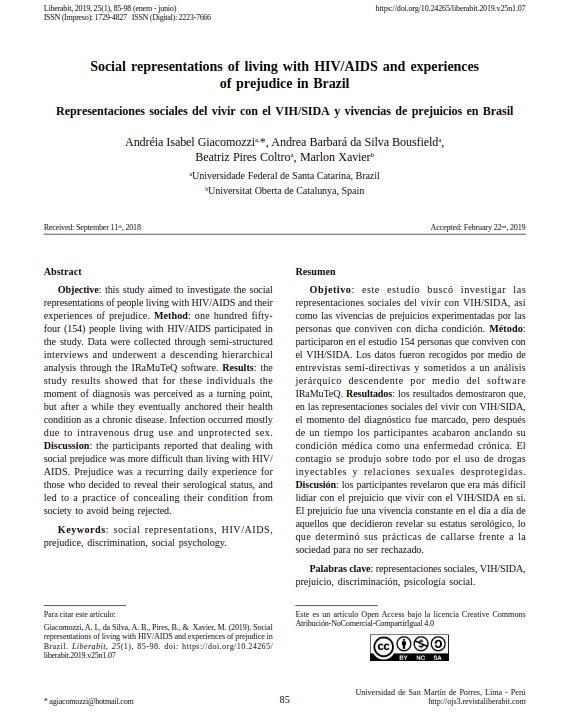Social representations of living with HIV/AIDS and experiencesof prejudice in Brazil
Licencia: Creative Commons (by-nc-sa)
Autor(es): Giacomozzi, Andréia; [et al.]
Objective: this study aimed to investigate the social representations of people living with HIV/AIDS and thei rexperiences of prejudice. Method: one hundred fifty-four (154) people living with HIV/AIDS participated in the study. Data were collected through semi-structured interviews and underwent a descending hierarchical analysis through the IRaMuTeQ software. Results: thestudy results showed that for these individuals themoment of diagnosis was perceived as a turning point, but after a while they eventually anchored their health condition as a chronic disease. Infection occurred mostly due to intravenous drug use and unprotected sex. Discussion: the participants reported that dealing withsocial prejudice was more difficult than living with HIV/AIDS. Prejudice was a recurring daily experience forthose who decided to reveal their serological status, and led to a practice of concealing their condition from society to avoid being rejected.
[2019]
Compartir:
Una vez que el usuario haya visto al menos un documento, este fragmento será visible.


